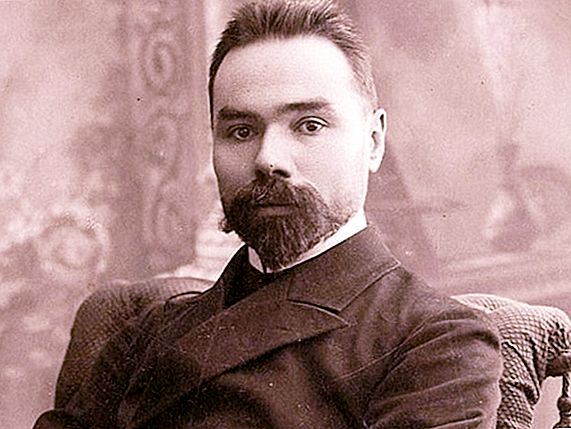REPUBLIC OF THE SOUTHERN CROSS (6)
By:
April 30, 2022

Valery Bryusov
HiLoBooks is pleased to serialize Valery Bryusov’s 1907 proto-sf story “The Republic of the Southern Cross” (“Respublika Iuzhnogo Kresta”) for HILOBROW’s readers.
ALL INSTALLMENTS: 1 | 2 | 3 | 4 | 5 | 6 | 7 | 8 | 9.
These catastrophes were simply patterns for new ones. The more alarmed the engine-drivers became the more liable they were to the disease and to the repetition of the mistake of their predecessors. Just because they were afraid of destroying a train they destroyed it. During the five days from the eighteenth to the twenty-second of June seven trains with passengers were wrecked. Thousands of passengers perished from injuries or starved to death unrescued in the snowy wastes. Only very few had sufficient strength to return to the city by their own efforts. The six main lines connecting Zvezdny with the outer world were rendered useless. The service of dirigibles had ceased earlier. One of them had been destroyed by the enraged mob, the pretext given being that they were used exclusively for the rich. The others, one by one, were wrecked, the disease probably attacking the crew. The population of the city was at this time about six hundred thousand. For some time they were only connected with the world by telegraph.
On the 24th of June the Metropolitan railway ceased to run. On the 26th the telephone service was discontinued. On the 27th all chemists’ shops, except the large central store, were closed. On the 1st of July the inhabitants were ordered to come from the outer parts of the town into the central districts, so that order might better be maintained, food distributed, and medical aid afforded. Suburban dwellers abandoned their own quarters and settled in those which had lately been abandoned by fugitives. The sense of property vanished. No one was sorry to leave his own, no one felt it strange to take up his abode in other people’s houses. Nevertheless, burglars and robbers did not disappear, though perhaps now one would rather call them demented beings than criminals. They continued to steal, and great hoards of gold have been discovered in the empty houses where they hid them, and precious stones beside the decaying body of the robber himself.
It is astonishing that in the midst of universal destruction life tended to keep its former course. There still were shopkeepers who opened their shops and sold for incredible sums the luxuries, flowers, books, guns, and other goods which they had preserved…. Purchasers threw down their unnecessary gold ungrudgingly, and miserly merchants hid it, God knows why. There still existed secret resorts, with cards, women, and wine, whither unfortunates sought refuge and tried to forget dreadful reality. There the whole mingled with the diseased, and there is no chronicle of the scenes which took place. Two or three newspapers still tried to preserve the significance of the written word in the midst of desolation. Copies of these newspapers are being sold now at ten or twenty times their original value, and will undoubtedly become bibliographical rarities of the first degree. In their columns is reflected the horrors of the unfortunate town, described in the midst of the reigning madness and set by half-mad compositors. There were reporters who took note of the happenings of the town, journalists who debated hotly the condition of affairs, and even feuilletonists who endeavoured to enliven these tragic days. But the telegrams received from other countries, telling as they did of real healthy life, caused the souls of the readers in Zvezdny to fall into despair.
RADIUM AGE PROTO-SF: “Radium Age” is Josh Glenn’s name for the nascent sf genre’s c. 1900–1935 era, a period which saw the discovery of radioactivity, i.e., the revelation that matter itself is constantly in movement — a fitting metaphor for the first decades of the 20th century, during which old scientific, religious, political, and social certainties were shattered. More info here.
SERIALIZED BY HILOBOOKS: James Parker’s Cocky the Fox | Annalee Newitz’s “The Great Oxygen Race” | Matthew Battles’s “Imago” | & many more original and reissued novels and stories.
